Chuang-o-lantern courtesy of @creatinefiend
Below is a repost of our recent interview with Matt Dagher-Margosian of the Asia Art Tours blog, where it was published in two parts on October 25th and November 9th, 2020.1
Asia Art Tours: As you outline in your article on Covid-19 (similar to the work of Mike Davis or Achille Mbembe) pandemics and other environmental catastrophes are inevitable under the necro-politics of capitalism. Within a China that had to (and please tell me if I’m exaggerating) risk ‘sacrificing’ Wuhan to contain the epidemic, has there been government reflection or large-scale transformation on the capitalist practices that unleashed Covid-19 within China? Moreover, what does the treatment of non-white collar workers and migrants tell us about how China (and global capital) will treat labor in the future during the next (inevitable) biological or environmental crisis?
Chuang (闯) : It’s not clear what you mean by “sacrificing” Wuhan? As the epicenter, of course it was going to be put under much more stringent controls, but let’s not use hyperbolic language here, because “sacrifice” sounds like there’s been some sci-fi zombie plague and the government is debating whether to deliver an airstrike. The situation was never that severe. If you want an example of “sacrifice” we’d suggest you look toward the policy of the US (pushed for by all the major industrial interests except the few who benefit from telework or e-commerce), where hundreds of thousands of people—disproportionately poor, which in the US also implies a racial disproportion—have been quite literally sacrificed to serve the needs of the economy. The death toll is enormous. If you took all those who died from Covid-19 in all of Hubei province, they wouldn’t even fill ten percent of the seating in an average American football stadium. Even if you took all the reported deaths in all of China and, suspicious of undercounting, doubled the number, you still wouldn’t have enough bodies to fill even a third of an average stadium. But then take all those who died of the disease in America and you could replace every single person in a city the size of Richmond, Virginia with a corpse and still have dead leftover. It’s a grim metaphor, but the point is that what happened in Wuhan would have, in every sense, been a major success compared to literally every major American city.
As for the second half of your question, the answer is basically just: No. First, let’s remember that this isn’t an innocent mistake. It’s not like large agricultural capitalists aren’t aware of the problem—they, after all, have to spend millions on vaccines, antibiotics, etc. for their livestock every season—nor is it an issue of the government not being aware or wanting to regulate: SARS made them perfectly aware of what was going on and certainly helped them to prepare the methods ultimately adopted with regard to this most recent pandemic. But none of this can change the baseline requirement built into the system: profitability. There is no way to produce profitably at scale that does not generate these ecological rifts: both macro-environmental and microbiological. China is a capitalist society ruled by a capitalist class and driven by capitalist imperatives, regardless of what rightwing politicians might say to the contrary. So “the government” which, in China, means a fairly well-organized alliance of all the leading fractions of the capitalist class, has to serve the needs of accumulation first and foremost. Everything else is secondary.
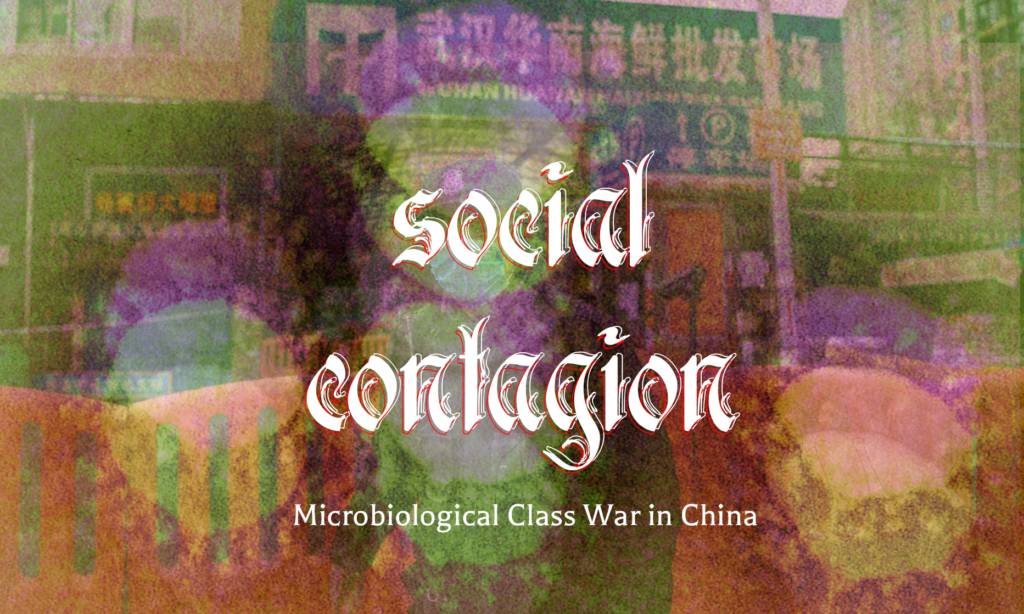
That said, of course we can see some important lessons here in how the Chinese state has dealt with its problems of poor capacity. In the past, it has been extremely difficult for the state to get its authority to “go all the way down” to the local level. In many cases, this has meant a fairly long-term devolution of power at the local level. That was particularly true in the villages, where marketization was accompanied by the retreat of direct oversight, as well as the rise of all kinds of new balkanized local governmental authority. But this also meant that such areas saw the rise of new hybrid local governmental mechanisms such as the villager committee (村委会), which is technically elected but tends in practice to be dominated by local elites, often organized through lineage associations (家族) in collaboration with local branches of the CCP—often these associations began to enter into local committees and local CCP branches simultaneously. In urban areas, there’s an equivalent mechanism, known as the resident committee (居委会), which is officially the lowest level of state administration in the cities despite not being an official government body. Similarly, local CCP branches also began to decentralize a bit, allowing more of the local elite to enter the party and selecting local party leaders through similar electoral measures which were, similarly, almost always sham elections distorted by local elite interests.
Among all these new hybrid organs of local government, rural village committees have tended to have more power and get more attention, because they’re involved in all sorts of conflicts over land sales, investment, etc. But in the context of the pandemic, we saw that the urban resident committees actually played a very important function, essentially stepping in where broader state capacity was lacking. These myriad small groups, each overseeing something like four to five thousand people, were given the primary responsibility for managing the flow of people coming back from the Spring Festival in the midst of the outbreak. These committees were (in many cities) peoples’ primary point of contact with “the state” during the whole ordeal, even if this relationship may have been managed indirectly. They were the ones you reported to if you arrived in the area, they oversaw your quarantine, you provided your health data to them and they also had the ultimate authority over whether you could return to your home or not. It remains to be seen how such organizations will evolve in the future, but it may well be that we will look back and point to this moment as the marker for when China first began to gain a truly functional local state apparatus, despite all its current inconsistencies. At the same time, it’s true that these committees have done some similar work in past emergencies, such as during SARS or in the harsh winter of 2008, when village committees helped coordinate emergency response in areas cut off from all access. The current pandemic simply shows that they’ve evolved in their scale, scope and efficiency—but most importantly, that they now seem to be more thoroughly integrated into chains of command linked a bit more directly to the central state, even if they still operate through all kinds of local idiosyncrasies. It’s not so much a question of a sudden change, then, as a long project of state building that has accelerated over the past decade.
So from this experience, we can say that although Chinese state capacity remains weak in absolute terms, it has become much, much more successful at managing this incapacity by devolving power down to local authorities. In general, we can use this as an example of where the state has clearly seen its weakness and is attempting to build a bottom-up basis for government by fusing many seemingly “grassroots” activities into its own de facto local organs. It helps that, in addition to these resident committees, there was plenty of earnestly grassroots, mutual aid activity taking place to provide healthcare workers with PPE, for example, or supporting the institution of local quarantine roadblocks. Those activities showed state incapacity, but they also hid it because they essentially solved the problem themselves, even if in a sometimes messy fashion (as when police and residents from Hubei and Jiangxi clashed over the provincial border reopening back at the end of March). It clearly shows that there’s the potential for this local level, semi-autonomous activity to be fused more directly to the state apparatus—and the pandemic was an important stage in that process, essentially proving that all the work of building up these strange hybrid local administrative organs successfully paid off and didn’t just result (as many predicted at the time they rolled out) in further balkanization into numerous fiefdoms run by the local elite (though this isn’t entirely untrue, either).
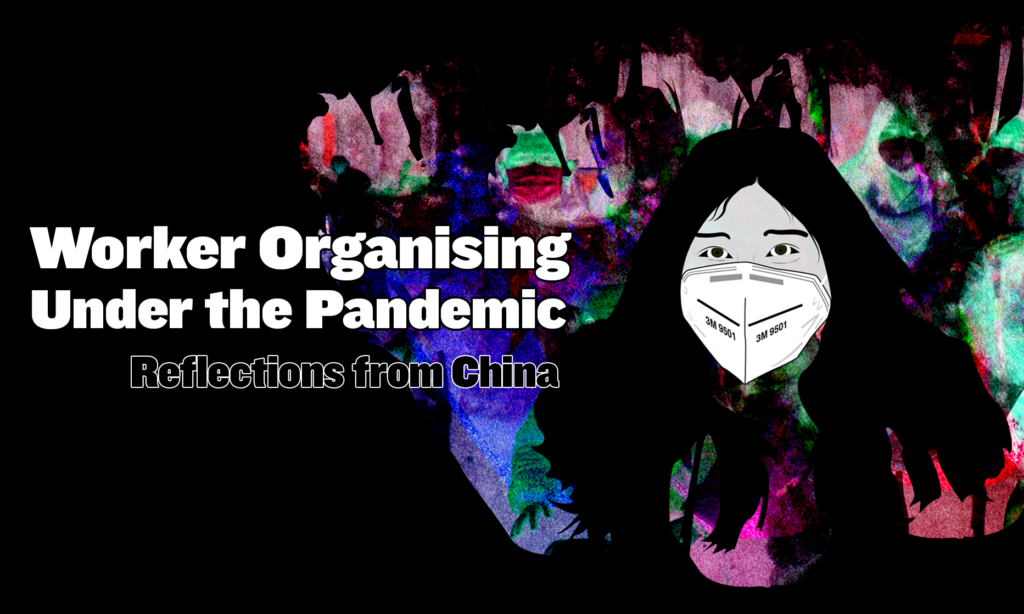
Asia Art Tours: I’ve been quite heartened by the work of outlets like Chuang, Reignitepress and Lausan who have translated articles from multiple languages into Chinese. From your vantage point what global techniques, strategies or theoretical lenses may provide solidarity with or usefulness to activists in China? (All Cops are Bad? Be Water? Black Lives Matter? The Milk Tea Alliance?) And what tactics, methods or insights from leftists/communists/anarchists in China have the potential to be translated, disseminated and used in other global struggles?
Chuang (闯) :Solidarity is a messy term, and we’re quite critical of it—even while we ourselves clearly engage in a level of direct interaction with Chinese activists that far exceeds what others are capable of—because the word is usually just an empty signifier whereby people attempt to compare and measure different levels of Leftist performance, which takes place almost exclusively on social media and periodically involves some staged sign-holding. There’s nothing political about this, because there’s nothing material behind it. At worst, it involves things like diplomatic pressure campaigns, embassy protests, etc. which tend to do nothing more than feed into domestic right-wing narratives of a new cold war between the freedom-loving west and the authoritarian Chinese. These campaigns will struggle to even be understood as “leftist” since, for them to be effective, they have to hide all mentions of their supporters’ socialist, communist or anarchist leanings. And even then they fail to spread very effectively. So the result is that they not only suffer from all the worst problems of the old Popular Front strategy (where radicals unite with liberals to oppose fascism, under liberal leadership), but in this case they’re not even popular. Let’s be frank here: if these campaigns do anything material, it’s to provide a veneer of legitimacy for right-wing politicians passing new protectionist national security measures which help to shore up the power of domestic monopolies—usually ones linked directly into the national security infrastructure, like Oracle, which was literally spun-off of an eponymous CIA project, the firm just rewarded a huge investment stake in TikTok due to one such law in the US. If success in such a campaign means that you get to meet with Tom Cotton to help draft anti-China legislation, this is maybe an indication that you’ve got yourself a strategy that does far more harm than good.
At the same time, though, the opposite is also true, as many earnest Western leftists end up recognizing these facts and turn in the other direction entirely, reading material by wumao (online trolls paid by the Chinese government to argue in its favor) that defends the Chinese state against any criticism. They ultimately offer a form of “solidarity” that provides a veneer of legitimacy for things like the crackdown in Hong Kong and the mass interment in Xinjiang. Even fairly prominent left-wing outlets, such as Monthly Review, have fallen into this trap. It’s pretty disgusting to see, honestly, when these publications help to promote propaganda geared toward covering up and even outright denying the second-largest wave of mass incarceration in the world (after, of course, the US prison complex). This certainly has nothing to do with “solidarity.”
Solidarity is a messy term, and we’re quite critical of it—even while we ourselves clearly engage in a level of direct interaction with Chinese activists that far exceeds what others are capable of—because the word is usually just an empty signifier whereby people attempt to compare and measure different levels of Leftist performance, which takes place almost exclusively on social media and periodically involves some staged sign-holding. There’s nothing political about this, because there’s nothing material behind it.
So, in material terms, how can people “provide solidarity” to activists in China? At the moment, most people basically can’t do this in any material way. At an individual level, of course, you can read about these struggles and learn more about the role of China within global capitalism. We don’t mean to be dismissive of this sort of activity. You should do it. That’s one reason we exist, after all. Communism is inherently internationalist, so obviously that entails the necessity of learning about the experiences of the single largest national fraction of the global proletariat working in the largest technological complexes in the world! But reading books isn’t really solidarity, unfortunately. If you’re really, extremely interested, you can try to do some of the things that we have done, which are a bit more material—that means learning Chinese if you don’t already speak it, helping to translate these experiences, going to China to talk to these workers directly, and further widening these lines of communication that we and the other groups you mention here (as well as numerous others) have been working to build for many years. Maybe you can best characterize this as something like “pre-solidarity,” because these are necessary factors laying the groundwork for what could grow, in the future, into actual material support and real, practical exchange between movements.
Two examples might be helpful here, one historical, and one recent. The first is an example of Chinese activists learning from struggles outside of China, and the second is an example of the opposite. First the historical: one thing that’s often forgotten when people talk about “solidarity” and “internationalism” today is the pragmatic form that those terms used to take. Solidarity didn’t just mean “thoughts and prayers” or our “hearts and minds” are with you! It meant: you are having an insurrection? Great, we’ll join you! Or, if we can’t have our own, at least take these shipments of guns! This is an extreme example, of course, but it signals the ultimate character of what we’re talking about. What has this international solidarity looked like for Chinese organizers in the past? An essential component of such solidarity in the late 19th and early 20th century was the role of international work-study programs: Chinese anarchists from slightly wealthier backgrounds used their resources to create an infrastructure for young Chinese radicals to travel from China to places like France, where they’d be thrown into the midst of the vibrant life of the French syndicates, and then bring back these lessons to the Chinese social context. Later, similar exchange programs with the Soviet Union would be equally integral. There’s plenty to critique about the details of such programs, but the point here is that “solidarity” was very hands-on, very material. That sort of direct international travel, work, and study—and of course translation, the founding of newspapers, libraries, journals, all goes along with this—was the real meat of solidarity. And that’s the sort of thing we’re trying to lay the foundation for.
This requires not only direct international interaction, but also the pragmatic linkage of struggles. So the second, contemporary example, is helpful here: we can see real cases of solidarity in the way that street tactics from Hong Kong have informed those engaged in the recent rebellion in the United States. Real solidarity, after all, doesn’t just mean that I’m going to wave a sign in front of an embassy, essentially asking the US government to condemn the crackdown. No, it means I’m going to learn from that life and death struggle and translate it into my own conditions directly. I’m going to strike at the injustices that are within striking distance for me, rather than just cheer on distant battles. So if you want to “show solidarity” with Hong Kong, for example, sure share some articles on twitter about the struggle—and more importantly, about tactical formations or using good security practices on Telegram, for example—but also go out there onto the streets and do something where you are at, pragmatically informed by what you’ve learned.
Real solidarity, after all, doesn’t just mean that I’m going to wave a sign in front of an embassy, essentially asking the US government to condemn the crackdown. No, it means I’m going to learn from that life and death struggle and translate it into my own conditions directly. I’m going to strike at the injustices that are within striking distance for me, rather than just cheer on distant battles.
There are a lot of Leftists who’ve spent years essentially lecturing people about the similarity of their struggles to those of distant comrades in China, imagining that, in doing so, they’re engaging in “solidarity.” But the reality is that just knowing, vaguely, that people go on strike in China or riot in Hong Kong is not of much help, and even knowing the reasons and the history behind it are not always very useful. Ultimately, this “solidarity” is therefore fairly cheap. But then you have these kids—and we are really talking about, like, teenagers here—who watch the Hong Kong riots live on social media, who see some of the memes we helped to aggregate and translate, covering things like shield formations, and they just go out there and reproduce it in the streets. That’s real solidarity! Because it comes with a cost, of course, and it requires some courage. Lecturing people about some distant struggle that doesn’t seem relevant to their actual lives but checks all the boxes of proper “connect-the-dots” internationalism—this is a feel-good performance useful only for the padding the ego of the Leftist. It’s easy. It doesn’t require an ounce of courage and it doesn’t have any cost in sweat or blood. So maybe, ultimately, that’s what we should say instead of solidarity from now on: sweat and blood.
Finally, we do want to make one point when it comes to struggles in the workplace. These are starting to increase again in many places following the economic collapse that had long been building and was finally triggered by the pandemic. We’ve translated numerous accounts of such struggles in mainland China over the years, and produced two longer articles reviewing their broader context and deeper trends. Even though such actions in China have been declining in intensity for some time now, this recent history still offers a number of extremely practical lessons for workers in places like the US or Europe, who are being placed under increasing strain in the midst of the crisis. One of the reasons that the Chinese case has so many practical lessons is precisely because the de facto illegalization of independent labor organizing meant that all the major strikes were informal wildcat strikes that made use of direct action. Back in the day, this included not only direct shutdowns of production, but also a lot of property destruction, the kidnapping of bosses and even just direct violence against abusive managers or corrupt local officials. Such tactics were, on average, also extremely effective. These are all great lessons for workers in Western countries, and especially in the US, where unionization is incredibly low and the existing unions act almost exclusively to repress unrest, divert workers away from truly effective tactics and slowly concede to bosses in negotiations. American workers could learn a lot from this: don’t blindly trust the official, state-sanctioned union representatives, for example. And more importantly: engage in the most direct possible action to disrupt business, including property destruction. Meanwhile, encrypt your communications and be ready to defend yourselves against the police!
Asia Art Tours: With the increasing of borders, surveillance, state violence and ethosupremacy both within China and globally. I wanted to ask how stable you see China as a functional nation-state for the foreseeable future? And has increasingly brutal governance/ethnosupremacy globally influenced CHUANG’S conclusions about the desire for nation-states in a communist/anarchist future?
Chuang(闯):Context is important here. When you say “increasingly brutal governance/ethnosupremacy,” we would ask: relative to where and when? In reality, it seems that things which have always been happening are just recently being made visible to many people. This is what you could maybe call the “Trump phenomenon” in the US, for example, where suddenly mass incarceration, forced labor, the construction of concentration camps for migrants, family separation at the border, rampant police murder, far-right assassinations and mass shootings—all these things suddenly appear to a bunch of people all at once not because they didn’t exist before but instead because the election of Trump turned such peoples’ eyes toward political topics for the first time in their lives. The reality, of course, is that everything listed above has a long, long history in America. In fact, that list is a fairly good summary of American history in general!
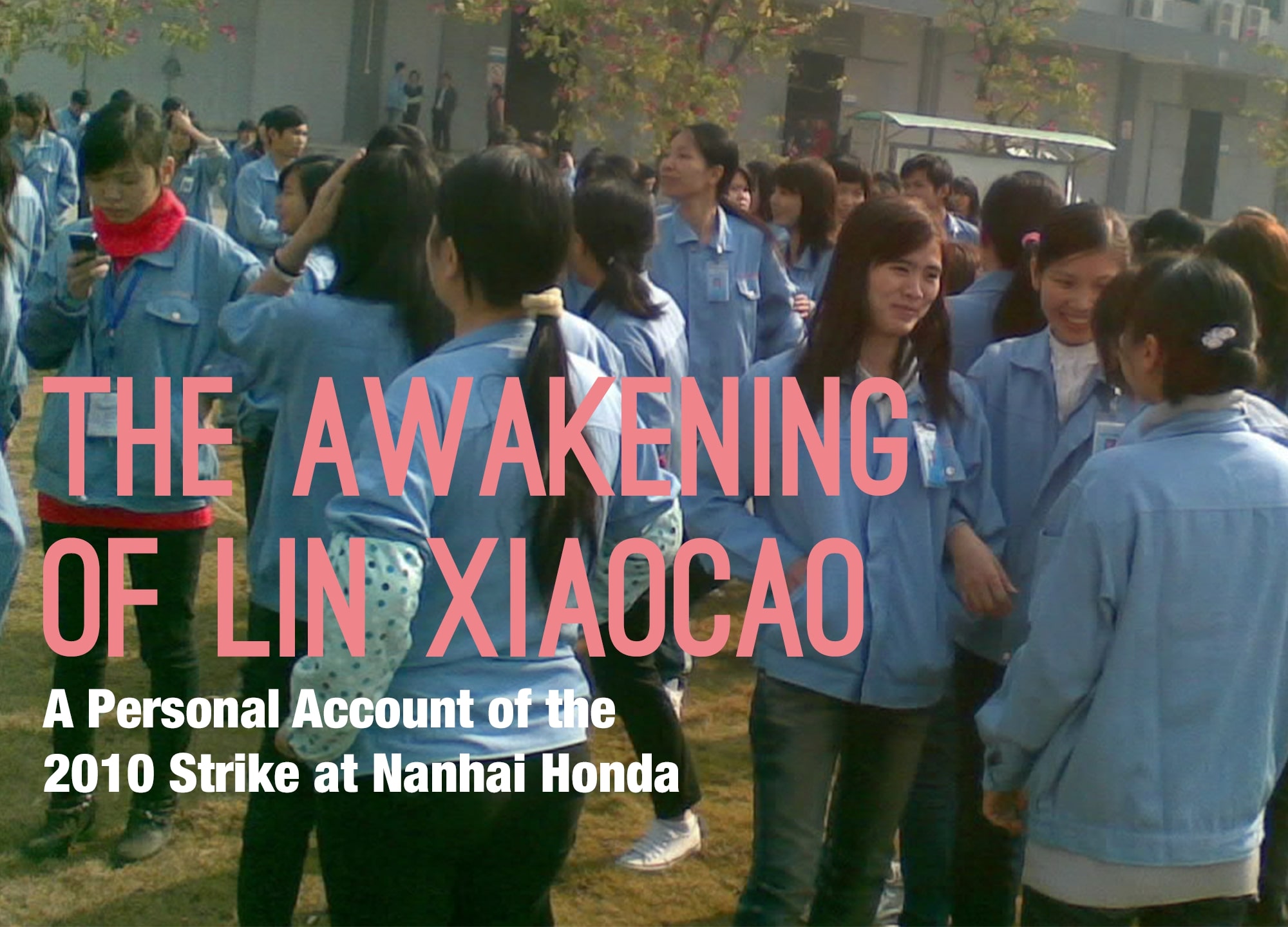 We think that any politics built around “pressuring” states or corporations to act better is going to be a losing game. Think, for example, of the giant global protests nearly two decades ago when the US invaded Iraq. There were enormous demonstrations in countries across the world. All kinds of diplomatic pressure emerged, many nations refused to join the US-led effort, anti-war groups sprouted up across the US itself and organized continually as the war began and dragged on. And it did absolutely nothing.
We think that any politics built around “pressuring” states or corporations to act better is going to be a losing game. Think, for example, of the giant global protests nearly two decades ago when the US invaded Iraq. There were enormous demonstrations in countries across the world. All kinds of diplomatic pressure emerged, many nations refused to join the US-led effort, anti-war groups sprouted up across the US itself and organized continually as the war began and dragged on. And it did absolutely nothing.
So proper historical framing is actually very important. Is it true that, if you are a communist or an anarchist organizing for racial equality in the US, you might now have your communications surveilled? That you might be beaten by the police, thrown in prison, shot by far-right lunatics? Of course it is. But the same was true in the 1960s, the 1930s, the 1890s, etc. We could say that exact same thing for China, by the way, maybe tweaking the years a little. So in all these senses, we tend to exaggerate what, exactly, is new and what isn’t, because our immediate reference points are often a fairly recent history which had been filled with propaganda promoting the end of history as such, the end of class struggle, how the economy was growing, how everyone was middle class, all that nonsense. Of course even then it wasn’t true if you were paying attention to the whole world, but it’s this false veneer of recent history that usually acts as our spontaneous reference point in trying to understand this period in which that veneer is slipping away. This doesn’t mean that the state doesn’t necessarily have far more expansive powers today, it’s just important to measure exactly how it does and doesn’t. Obviously, the intricacy of surveillance is greater today than it was in the past, for instance. And the real issue here is basically whether or not these capacities make modern states more resilient to internal popular challenges against its power.
Certainly, we can point to the really extreme inequality when it comes to the ability to mobilize force and violence. Measured at a technical level, the contemporary capitalist class, organized into myriad states, is terrifying in its ability to, quite literally, destroy the world. At the same time, even the greatest military supremacy is clearly unable to easily deal with a popular, asymmetrical struggle against it. If you then add the classic revolutionary conditions into that equation—things like mutiny within the armed forces, for instance, mass defection from the conservative side to the revolutionary one, breakdown of the productive apparatus, etc.—it seems to hint that this imbalance might not be as severe as it looks at first glance. Revolutionary capacity can’t just be measured by counting guns. Instead it’s something intensive, it involves a real breakdown in the mainline circuits of the global economy and that does a very different kind of damage to the power of capitalist class than even many historic revolutions. So that’s one reason why the Chinese case is so interesting to us, because of the unique ways in which the global industrial system has concentrated a number of absolutely essential nodes within China, and what might happen if a local rebellion were to halt that production.
Finally, you ask about “the desire for nation-states in a communist/anarchist future.” The answer here is very simple: there is no such desire. No self-respecting communist can look you in the face and say that there is still a “state” in communism. If they do so, they aren’t a communist in any sense of the word. And of course the anarchists have no desire for a state. Meanwhile, the term “nation-state” has always been more of a propaganda effort than a description of any fundamental unity. If states have a linguistic or national/cultural character, it’s because they were at their founding and are still today the administrative mechanism of certain factions of capitalists (and historically of course landed elites, old aristocrats, etc.) who share a rough linguistic or cultural affinity and therefore began to coordinate their interests according to these accidents of history that had thrown them together. These were contingent alliances among capitalists, often inherited from pre-capitalist geographies, which then took on the character of more general “national” cultures.
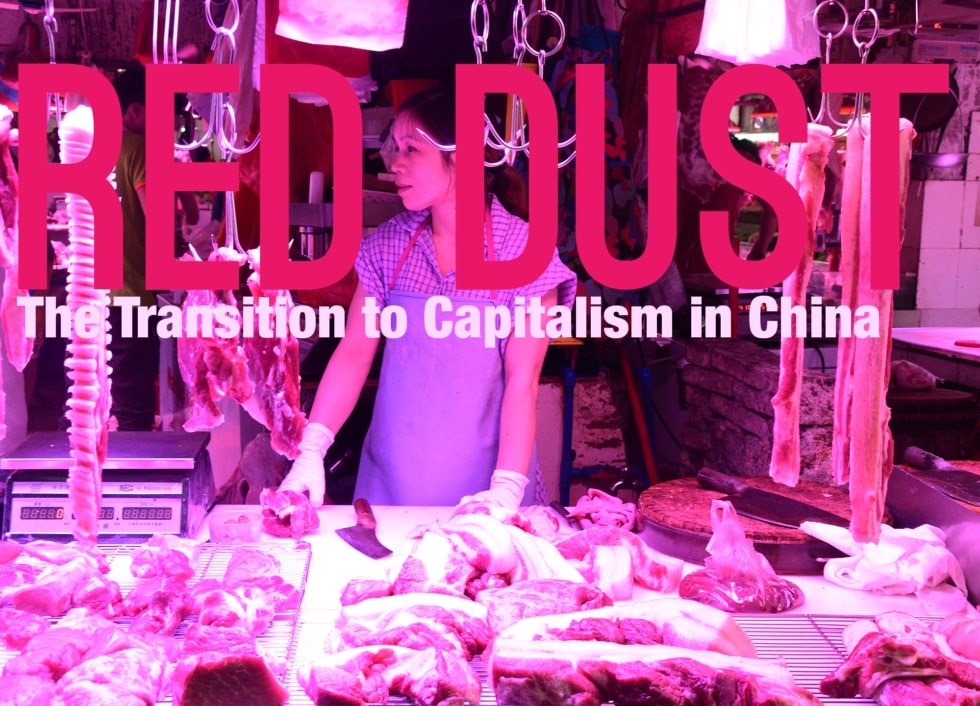 When you say “increasingly brutal governance/ethnosupremacy,” we would ask: relative to where and when? In reality, it seems that things which have always been happening are just recently being made visible to many people. This is what you could maybe call the “Trump phenomenon” in the US, for example, where suddenly mass incarceration, forced labor, the construction of concentration camps for migrants, family separation at the border, rampant police murder, far-right assassinations and mass shootings—all these things suddenly appear to a bunch of people all at once not because they didn’t exist before but instead because the election of Trump turned such peoples’ eyes toward political topics for the first time in their lives.
When you say “increasingly brutal governance/ethnosupremacy,” we would ask: relative to where and when? In reality, it seems that things which have always been happening are just recently being made visible to many people. This is what you could maybe call the “Trump phenomenon” in the US, for example, where suddenly mass incarceration, forced labor, the construction of concentration camps for migrants, family separation at the border, rampant police murder, far-right assassinations and mass shootings—all these things suddenly appear to a bunch of people all at once not because they didn’t exist before but instead because the election of Trump turned such peoples’ eyes toward political topics for the first time in their lives.
But even the “nation” is often a joke, to be honest. Because the fact is that the most homogenous nations almost always have had to (often quite violently) enforce standardization and assimilation into that supposedly self-same national culture. If you look at the early-modern formation of these nation-states in Europe, for example, the historical documents are filled with attempts to force everyone to speak mutually-intelligible, standardized versions of, say, French, and to celebrate a particular subset of distinctly national cultural features. In many places, even ignoring the most egregious examples from settler-states, this meant a pretty substantial suppression of internal linguistic and cultural diversity (think, for example, of why people speak English in the British Isles, and not, say, Welsh). This is of course exactly what the Chinese state continues to pursue today, causing the recent conflict around Mongolian language education, for example.
In reality, almost all the evidence points to a much greater spontaneous level of cultural and linguistic diversity that arises whenever efforts to the contrary are halted. So we’d expect that, even if there’s a strong effort to construct and maintain a mutually intelligible lingua franca (or several) for the entire globe in such a society, we’d also expect see an unprecedented flourishing of entirely new cultural and linguistic practices at local scales. It would be a mistake, though, to use concepts like “nation” to describe such practices, just like it’s a mistake to use the word “state” to describe just any sort of collective, intentional coordination among people in a society. These are terms that, in their modern connotations, describe phenomena specific to the arc of class societies, from early agrarian empires to contemporary capitalism. The communist project is to end class society. Marx and Engels describe this as a return of sorts, at an entirely new (technological, demographic, ecological) scale, to the communistic relations that prevailed for much of human history. So whatever linguistic, cultural or geographic diversity we’d see in a communist society would need new terms to describe it or, at the very least, would be better described using categories from very different linguistic contexts—languages that emerged in nomadic pastoralist societies, or among hunter-gatherers, for instance. And the implications of such words would be very different.
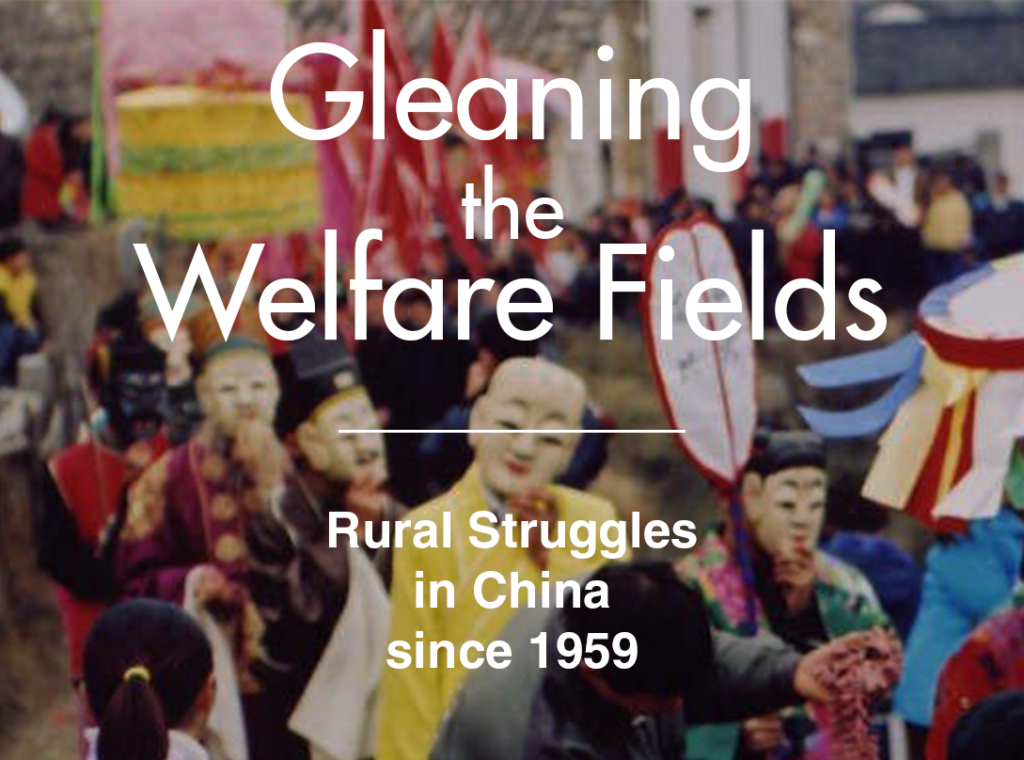
Asia Art Tours: Lastly, I always remember what scholar Eli Friedman told me in our interview on the (then jailed) labor activist Xiangzi, that (I’m paraphrasing) we never know what international protests, dissent or direct action can effectively pressure China, so we just have to keep trying to find new pressure points. For activists working on labor, Xinjiang, Hong Kong, Tibet or other China issues what advice do you have for finding these pressure points, and how to use them when they are found?
Chuang(闯): We think that any politics built around “pressuring” states or corporations to act better is going to be a losing game. Think, for example, of the giant global protests nearly two decades ago when the US invaded Iraq. There were enormous demonstrations in countries across the world. All kinds of diplomatic pressure emerged, many nations refused to join the US-led effort, anti-war groups sprouted up across the US itself and organized continually as the war began and dragged on. And it did absolutely nothing. States and the capitalists that sit behind them simply aren’t beholden to any rules of etiquette other than the ones they set for themselves. So, at the very best, an “effective” pressure point in this sense means begging that one fraction of the capitalist class punish another one for stepping out of line. This sort of appeal to the state is, effectively, what a lot of activists have been pursuing with regard to China’s crackdown in Hong Kong and its violent assimilationist projects in Xinjiang, Tibet and now Mongolia. Hopefully at least some of these activists are a bit embarrassed that those most ready to condemn China alongside them have been the most notorious of conservative politicians and domestic capitalists. This should be enough evidence that the idea of “pressure points” is a losing strategy, all around.
A lot of “socialists” today are also falling into this trap, though, from the opposite end: thinking that “anti-imperialism” means taking one side in what is really a building inter-imperialist conflict. They point to the hypocrisy of supposed leftists sharing articles by notorious, lunatic anti-communists like Adrian Zenz about Xinjiang, for example, or they share pictures of Hong Kong protestors waving American flags. These are easy targets, but they’re real targets, because so many people are making these basic mistakes and appealing to conservative forces who also oppose “Chinese authoritarianism” out of economic interest or because of their far-right evangelical ideology—despite the fact that these are the same people pushing for the passage of laws that illegalize far-left organizing in Europe and the US! But it’s equally idiotic to make the equivalent error in the opposite direction, jumping to the defense of the Chinese state, ignoring the crackdown on feminists, workers’ centers and Marxist student groups, or denying outright what is going on in Xinjiang.
A lot of “socialists” today are also falling into this trap, though, from the opposite end: thinking that “anti-imperialism” means taking one side in what is really a building inter-imperialist conflict.
Against all this, we think it’s more strategic to ask how and where communists can build real power in the midst of ongoing global uprisings in a way that doesn’t just get washed away into a generic push for “progressive” social policies, or roped into supporting one faction in a global inter-capitalist conflict. An important part of this is establishing lines of communication and mutual understanding while, in doing so, honing our understanding of global capitalism and its myriad conflicts. As mentioned above, this is really still a project in its earliest stages, but laying the groundwork is essential and we’ve already seen some great, inspiring results—for instance, some of the crossover effects between the uprising in the US and the one in Hong Kong a year earlier. Hopefully these sorts of interactions can gain depth and breadth over time, particularly as unrest continues to build worldwide.
And this is another important part of the project: participating in these cycles of unrest where you are at. If you really want to show “solidarity” with China, you’re wasting your time trying to appeal to the better nature of governing elites. If this is your idea of solidarity, you’ll ultimately be embarrassed by the results. You’d do better to go join the frontlines and defend the rioters burning down the police station and looting the Target in Minneapolis; kick back teargas canisters as the crowd smashes the luxury shops all down the Champs-Élysées; hurl bricks into the retreating line of riot cops in Bandung, Indonesia; storm federal buildings with the feminists in Mexico City. Wherever you are, the best solidarity is built from the blood and sweat that goes into making territories increasingly ungovernable, regardless of how well you intellectually understand, for example, that the struggle against racism in the US is structurally linked to the struggle against austerity labor laws in Indonesia and the struggle for so-called “democracy” in Hong Kong. Don’t waste your time looking for “pressure points” or petitioning your leaders. Instead, build power wherever and however you can.
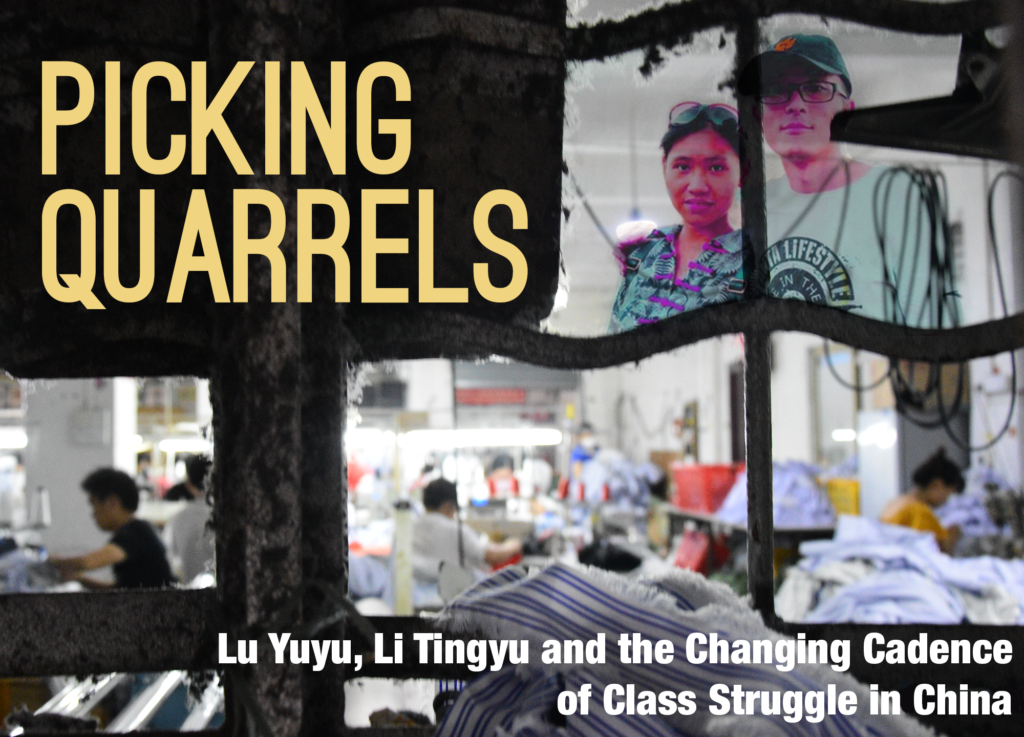
Notes
- Also check out Matt’s podcast, The Arts of Travel, for interviews about politics, art, and radical left activism throughout Asia. We especially recommend the November 15th interview with Geoff Aung, “On The Capitalist Dreamworlds and Nightmares of Myanmar.”


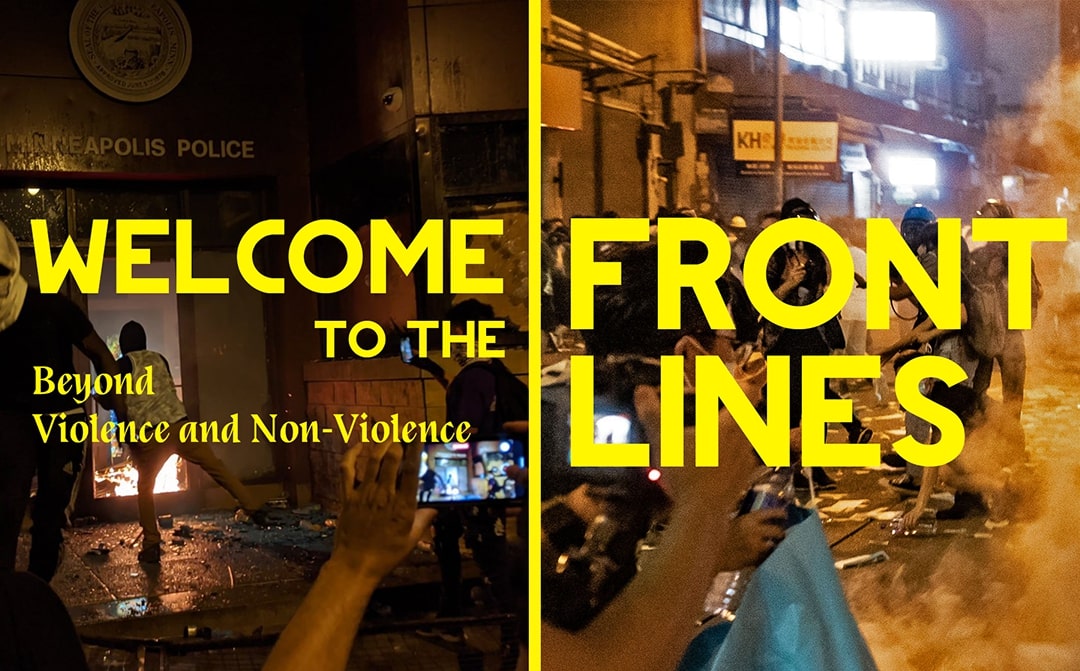
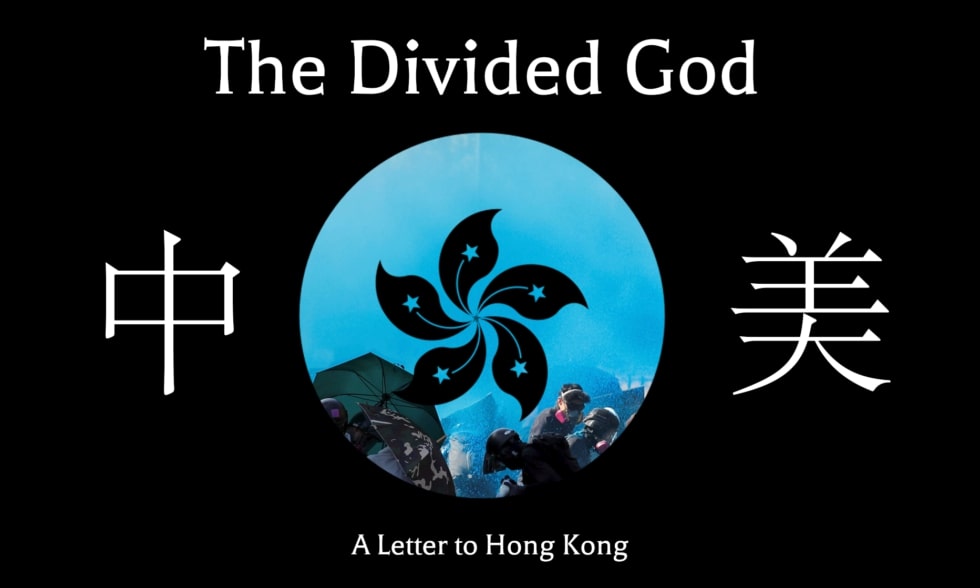
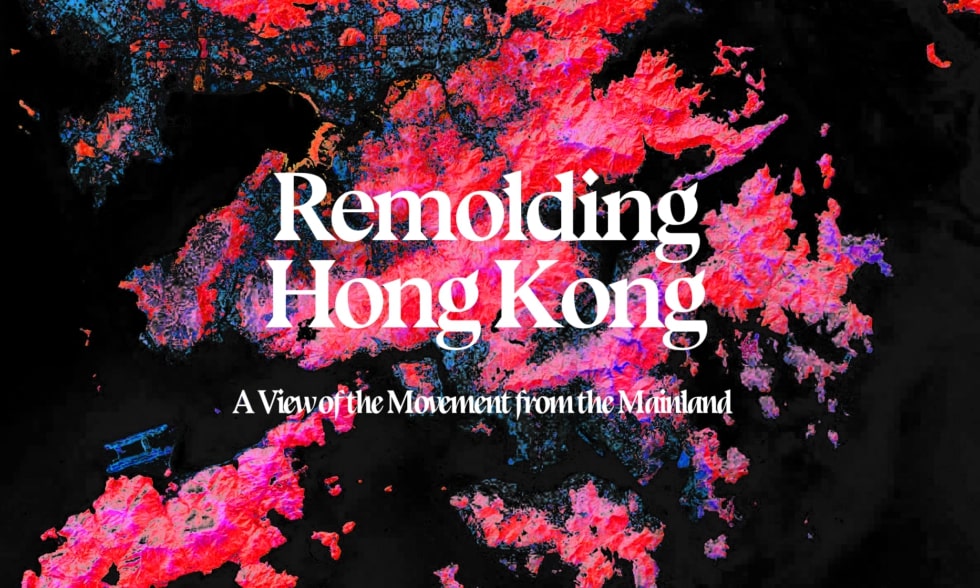
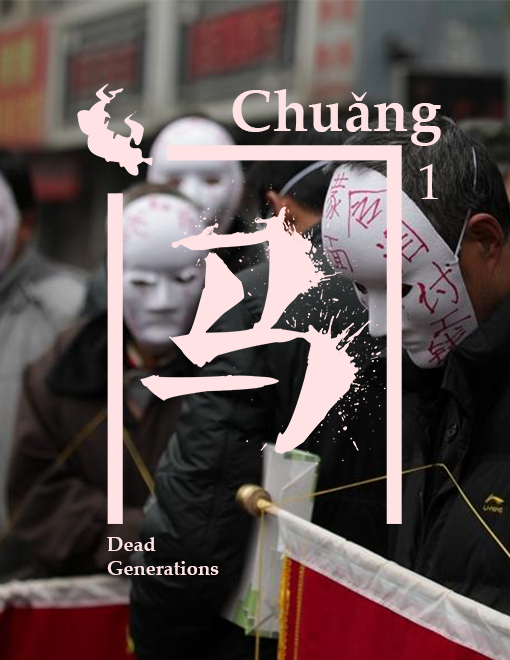


Spanish translation:
“Chuǎng (闯): Covid, capitalismo, huelgas y solidaridad. Una entrevista con Asia Art Tours”
https://translatoriac.noblogs.org/chuang-entrevista-con-asia-art-tours/